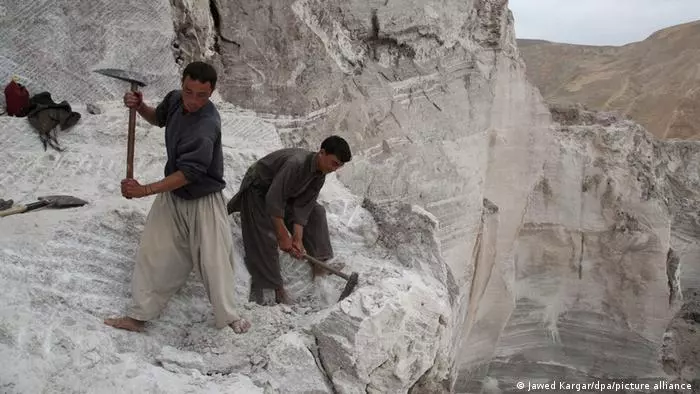While the world is focused on dealing with the crisis in Ukraine, China is trying its best to gain control over the vast minerals of Afghanistan. Beijing has had its eye on the country’s vast mineral resources ever since the Taliban took over last year and Chinese companies are discussing mining rights and research access with the Kabul regime.
“Chinese mining companies have been scouting opportunities to access Afghanistan’s lithium & copper deposits. Chinese mining industry representatives met with Taliban officials to discuss mining rights and research access to such minerals,” says Special Inspector General for Afghanistan Reconstruction (SIGAR) in its latest report.
According to the report, Afghanistan’s s lithium deposits could be among the largest in the world, rivaling those of Bolivia.
(2/2)…Chinese mining companies have been scouting opportunities to access #Afghanistan’s lithium & copper deposits. Chinese mining industry representatives met with Taliban officials to discuss mining rights and research access to such mineralshttps://t.co/LuV5DzXzky
— SIGAR (@SIGARHQ) February 27, 2022
Although Afghanistan has vast mineral resources, most projects in extractive activities require a 5 to 10 years lead time, and will require significant improvements in security and a more investor-friendly regulatory environment. Uncertainties regarding security, poor infrastructure, and mining policies were acting as a bottleneck for the mining industry. The multiple obstacles to formal development have left a large percentage of mining activity in Afghanistan to informal or illegal small-scale operations that smuggle their products out of the country.
Afghanistan has lithium deposits which are estimated to be worth around $1 trillion which could rival Bolivia’s 21MT.
However, while China is trying to get the ball rolling, Afghan officials at the Ministry of Mines and Petroleum said no plans are on the table to extract lithium, adding the plan regarding the mine is to protect it.
But officials said that China will start extraction from the copper mine in the spring of the coming year.
“In response to every country which contacted us so far, we said our policy is that we are trying to protect mines, including lithium mines for now, but regarding the copper mines, the Islamic Emirate is committed,” Burhan Afghan, a spokesman of the Ministry of Mines and Petroleum told TOLO News.
While 50 per cent of all known lithium reserves are in the Lithium triangle of ABC – Argentina, Bolivia and Chile, estimates are that it is Afghanistan that is sitting on huge deposits of untapped Lithium that could rival the South American deposits.
Where lithium is concerned, it is also central to China dominating the world's lithium-ion battery production. China accounts for more than 60 per cent of global lithium-ion battery production. As the largest global importer of raw lithium, China is constantly looking to augment its supply chain.
From electric vehicles or EVs to cell phones and computers, China needs to ensure its supply chain and one way of doing it is to aggressively acquire ownership of mines abroad especially in Afghanistan. Though China has not yet officially recognised the Taliban regime in Afghanistan, it has been in talks with the Taliban leaders since before the takeover. China's interest naturally lies in the huge deposits of minerals that are believed to be present in the mountainous country.
According to China, it is like a win-win situation for both parties. The Taliban gets to revive the Afghanistan economy and China gets huge deposits of lithium, practically next door.
According to Chinese state media, Global Times, in the past few months representatives of several Chinese companies have been conducting on-site inspections of potential lithium projects.
Also Read : China’s interest in Afghanistan’s lithium stockpiles cools due to unsafe conditions




















